Dani Bryson’s "Legal" Argument Against the Law Amendment Is a Tactic Designed to "Kill a Good Idea"
Opponents of the Law Amendment have developed new arguments in recent months, expressing concern that it will have “sweeping” and “unintended” consequences that will fundamentally transform the relationship between the SBC and its member churches into something that looks more like a hierarchical denomination. For reasons explained in this article, these concerns are a red herring.
For example, in writing for the Baptist and Reflector, Assistant District Attorney and Executive Committee Member Dani Bryson claims that the Law Amendment would “expand the role of the Credentials Committee exponentially.” She argues that the Amendment is unnecessary since the Convention voted to disfellowship Saddleback and Fern Creek at the 2023 Annual Meeting in New Orleans. Commenting on Bryson’s article, SWBTS Professor Malcolm Yarnell decried the “jarring issues” raised by the Law Amendment.
To evaluate this argument, you need to understand some basics about how the Credentials Committee currently functions within the SBC. The Law Amendment amends Article III (Composition) of the SBC’s Constitution to add that a church will only be deemed in friendly cooperation with the SBC if it “affirms, appoints, or employs only men as any kind of pastor or elder as qualified by Scripture.” This language, taken verbatim from the BF&M 2000, joins a handful of other issues added to Article III in recent years. In 2021, in Nashville, the SBC finally ratified bright-line rules that made clear that a church was only in friendly cooperation if it “does not act in a manner inconsistent with the Convention’s beliefs regarding sexual abuse” and “does not act to affirm, approve, or endorse discriminatory behavior on the basis of ethnicity.”
In the quaint times before recent Article III amendments, the Credentials Committee had one main but broad mandate: to respond to challenges against member churches’ credentials and make a recommendation to the Executive Committee as to whether such church “[h]as a faith and practice which closely identifies with the Convention’s adopted statement of faith” (i.e., the Baptist Faith & Message 2000).
The phrase “closely identifies” is one that is subject to several interpretations (Does it mean strict subscription? Non-contradiction? Something looser?). The SBC’s bylaws, which govern the Credentials Committee, give no further color on what exactly “closely identifies” means. Therefore, the rules governing the Credentials Committee, as written, gave the Credentials Committee wide latitude to make recommendations. You could say that the Credentials Committee has a low floor (i.e., there are very few cases where it is forced to take action) but also a very high ceiling (i.e., there are very few cases where the Committee could not theoretically take action regarding a church that is out of step with the BF&M 2000).
So, the current status quo is that the Credentials Committee can, in theory, refer churches to the Executive Committee for failing to closely identify with the requirements of the BF&M 2000—including “Article VI, The Church,” which says that only men, as qualified by Scripture, may serve as pastors. Clearly, Bryson agrees; she says that the disfellowshipping of Saddleback and Fern Creek in New Orleans demonstrates that no Law Amendment is needed since the Credentials Committee already has the jurisdiction to address egalitarian churches under the existing Constitution.
But there is a sleight of hand at work here.
Bryson (who should know better since she is a lawyer, as her piece reminds us several times) casts the Law Amendment as a jurisdictional expansion of the Credentials Committee when, in fact, the Amendment limits the Committee’s discretion and gives power to the messengers. The Credentials Committee already has all the power it needs to disfellowship egalitarian churches if it so chooses.
But the Credentials Committee has often chosen to do nothing.
The Law Amendment aims to give the Credentials Committee clear marching orders from the messengers. This is much needed. Recall that the Chair of the Credentials Committee admitted to the 2022 Annual Meeting of the SBC in Anaheim that the Committee lacked clarity on how to proceed with Saddleback. The fact that a subsequent interaction of the Credentials Committee reversed course only serves to underscore its broad discretion under the current arrangement.
Reactions against the Law Amendment have revealed that the proliferation of egalitarian churches and practices is a live issue in Southern Baptist life. We have seen members of the Executive Committee make explicitly pro-egalitarian arguments, and a former SBC president minimized the issue despite reports showing thousands of women pastors in Baptist life.
Furthermore, Bryson’s fears—that the Law Amendment will result in runaway Credential Committee investigations of pastoral qualifications—are already formal possibilities today under the status quo. Under the Law Amendment, the Credentials Committee would be required to act on prima facie violations of the BF&M 2000 (e.g., public practice or stated belief that, on its face, contradicts the BF&M 2000, such as egalitarianism). But crucially, as is the case now, the Credentials Committee will still need to exercise discretion and not undertake inquisitorial functions to second-guess every pastoral appointment in the SBC.
Fundamentally, the Law Amendment demands that the Credentials Committee exercise renewed vigilance against one of the great doctrinal errors of our day. This is how God’s church has always been preserved through the ages. Churches must weed out errors that predictably sprout up in each new season. Faithfulness requires perennial vigilance; indeed, the great creeds of the church arose as reactions against the great heresies of the day.
Because the Credentials Committee claimed it did not have clarity on who counts as a pastor in a church in friendly cooperation with the SBC, the Law Amendment provides this much-needed and requested clarity.
The Law Amendment is also very modest relative to other Article III amendments in recent years, as it merely tracks the language of the BF&M 2000. Contrast the Law Amendment with Article III, Section 1.4, which says a church is only in friendly cooperation if it “does not act in a manner inconsistent with the Convention’s beliefs regarding sexual abuse.” This standard is much broader than mere compliance with the BF&M 2000, presumably including resolutions and proclamations by the Executive Committee, which operates with ad interim authority on behalf of the Convention.
As Bryson should know, the functional effects of the Law Amendment are negligible compared to other recent changes to the SBC Constitution. For example, the new abuse and discrimination standards require the SBC’s annual meeting to function like a court, with thousands of messengers serving as the jury, making fact determinations based on three-minute testimony from the platform and three-minute testimony from the witness. Each messenger is required to decide whether pastor so-and-so is an abuse apologist or a racist based on six minutes of testimony, with no cross-examination, no discovery, and no testimony made under oath.
In contrast, adjudicating egalitarian practice is done much more simply, typically based on clear and undisputed public statements and practice. There are rarely disputes of fact. Rick Warren and Linda Barnes Popham made their case forthrightly, so the only question was one of principle (not fact): Given what they have said here on the convention floor, are they in friendly cooperation?
Contrary to Bryson’s fears, the Law Amendment neither expands the Credential Committee’s jurisdiction nor requires it to undertake some exotic new function. Her insights were neither accurate nor “jarring.” The Law Amendment does nothing more than reiterate what our confession of faith claims we believe and clarifies for the Credentials Committee that Southern Baptists still believe that only men, as qualified by Scripture, can be pastors in cooperating churches—and we expect the Credentials Committee to take our confession seriously and act appropriately. They asked for clarity, and they are getting it.
In his article, Four Ways to Kill a Good Idea, Harvard Business School professor emeritus John Kotter outlined four effective tactics that often appear in opposition to good ideas: (1) Fear-mongering to create infectious anxiety; (2) Death by delay that kills momentum for change; (3) Creating confusion with irrelevant facts; and (4) Ridicule to undermine the credibility of the good idea.
As the SBC’s Annual Meeting in Indianapolis looms, opponents of the Law Amendment are employing these tactics at every turn. Byrson’s article is no exception.
We are told that the Law Amendment is intractably complicated (confusion), that it has a host of unintended consequences (fear-mongering), and that we must amend it or form yet another study committee (death by delay), and that, if passed, the Convention will have to spend countless hours disfellowshipping egalitarian churches or that the Amendment is a “war on women” (ridicule to undermine the credibility of the effort).
Far from bringing “chaos,” as Byrson so dramatically warns, the Law Amendment defends biblical doctrine and clarifies that the SBC and the Credentials Committee still adhere to the BF&M 2000.
There is chaos in the SBC right now, but not because of the Law Amendment. The true chaos is the unmitigated proliferation and toleration of egalitarian churches that openly mock our statement of faith and the clear commands of God regarding who is qualified to be a pastor. Either the SBC will be complementarian, or it won’t. There can be no middle ground.
But I’m confident that messengers will see through these “stall, delay, and kill” tactics and do the right thing, siding with Scripture and our confession of faith against the popular, feminist-driven compromises of the day.
Ignore the red herrings. Let’s ratify the Law Amendment in Indianapolis and trust that God will honor us, as Southern Baptists, for standing on His Word.
Share This Story

